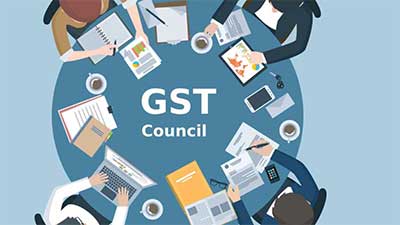GST Council
CONTEXT:
Finance Minister Nirmala Sitharaman will chair the 45th meeting of the Goods and Services Tax Council on September 17 at Lucknow.
IMPORTANT POINTERS:
- Goods & Services Tax Council (GST Council) is a constitutional body for making recommendations to the Union and State Government on issues related to Goods and Service Tax.
- The 101st Amendment Act of 2016 paved the way for the introduction of a new tax regime (i.e. goods and services tax – GST) in the country. The smooth and efficient administration of this tax requires cooperation and coordination between the centre and the states.
- In order to facilitate this consultation process, the amendment provided for the establishment of a GST Council.
- The amendment inserted a new Article 279-A in the Constitution of India. This article empowered the President to constitute a GST Council by an order.
- Accordingly, the President issued the order in 2016 and constituted the Council. The Secretariat of the Council is located in New Delhi. The Union Revenue Secretary acts as the ex-officio Secretary to the Council.
- The Council is a joint forum of the centre and the states and consists of the following members:
- The Union Finance Minister as the Chairperson
- The Union Minister of State in-charge of Revenue or Finance
- The Minister in-charge of Finance or Taxation or any other Minister nominated by each state government
- The members of the Council from the states have to choose one amongst themselves to be the Vice-Chairperson of the Council. They can also decide his term.
- The Union Cabinet also decided to include the Chairperson of the Central Board of Excise and Customs (CBEC) as a permanent invitee (non-voting) to all proceedings of the Council.
- The Council is required to make recommendations to the centre and the states on the following matters:
- The taxes, cesses and surcharges levied by the centre, the states and the local bodies that would be merged in GST.
- The goods and services that may be subjected to GST or exempted from GST.
- Model GST Laws, principles of levy, apportionment of GST levied on supplies in the course of inter-state trade or commerce and the principles that govern the place of supply.
- The threshold limit of turnover below which goods and services may be exempted from GST.
- The rates include floor rates with bands of GST.
- Any special rate or rates for a specified period to raise additional resources during any natural calamity or disaster.
- Special provision with respect to the states of Arunachal Pradesh, Assam, Jammu and Kashmir, Manipur, Meghalaya, Mizoram, Nagaland, Sikkim, Tripura, Himachal Pradesh and Uttarakhand.
- Any other matter relating to GST, as the Council may decide.
Sources
- The Indian Express
- The Hindu
- PIB
- PRS







